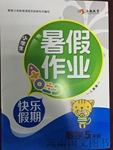题目内容
I read about it in some book or other,does it matter ____ it was?
A.where B.what C.how D.which
D

 永乾教育寒假作业快乐假期延边人民出版社系列答案
永乾教育寒假作业快乐假期延边人民出版社系列答案_______was last night ______I read about the history of English.
| A.This ,when | B.It ,since | C.It .that | D.It ,before |
When we think about giving help to developing countries, we often think about giving money so that these countries can build schools and hospitals, buy food and medicine, or find clean water supplies. These seem to be the most important basic needs of the people we are trying to help. However, it's far from enough. Ladies and gentlemen, we've got to come up with some better  ideas to help them.
ideas to help them.
I was very surprised, then, when I read about a plan to make cheap laptop computers for children in developing countries. A man called Nicholas Negroponte invented a cheap laptop computer, which can run without electricity. He decided to invent this computer after he visited a school in Cambodia.
The laptop which Mr. Negroponte has designed is a little different from the normal laptop computers you can buy in the shops. One difference is that it is covered in rubber so that it is very strong and won't be damaged easily. As an electricity supply can be a problem in developing countries, the computer also has a special handle so that children can wind the computer up to give it extra power when needed.
These special laptop computers will cost less than 100 US dollars and Mr. Negroponte wants to build as many as 15 million machines in the first year of production. The idea is that these computers will help the children's education as they will be able to access the Internet. These computers might not help the people in developing countries immediately, but by improving children's education they should help people to find their own solutions to their problems in the long term.
Another idea to help children in developing countries is to recycle old mobile phones so that they can be used again. In the UK, and, probably in many other countries too, millions of mobile phones are thrown away every year. The waste created by throwing away these old phones is very bad for the environment, so it seems to be an excellent idea to recycle them. In this way we will be able to achieve two important goals at the same time. We will reduce the waste we produce and help others. In other words, we will be able to 'kill two birds with one stone', and that is always a good thing.
【小题1】 The author gives the example of Mr. Negroponte's cheap computers _______.
| A.to show what high tech can bring us. |
| B.to illustrate the kindness of people in the developed countries |
| C.to show how to find business opportunities in developing countries |
| D.to give an example of how to help developing countries |
| A.His computers don’t need any power to function well. |
| B.His computers are covered with rubber so that they are very cheap. |
| C.His computers will help children in developing countries to have better education. |
| D.His computers will help people in developing countries to find all the solutions. |
| A.A magazine | B.A newspaper | C.A lecture | D.An advertisement |
When we think about giving help to developing countries, we often think about giving money so that these countries can build schools and hospitals, buy food and medicine, or find clean water supplies. These seem to be the most important basic needs of the people we are trying to help. However, it's far from enough. Ladies and gentlemen, we've got to come up with some better ideas to help them.
I was very surprised, then, when I read about a plan to make cheap laptop computers for children in developing countries. A man called Nicholas Negroponte invented a cheap laptop computer and he planed to produce a lot and sell them to the children in developing countries at a low price after he visited a school in Cambodia. The laptop will be covered in rubber so that it is very strong and won't be damaged easily. The idea is that these computers will help the children's education as they will be able to surf the Internet. By improving children's education they should help people to find their own solutions to their problems in the long term.
Another idea to help children in developing countries is to recycle old mobile phones so that they can be used again. In the UK, and probably in many other countries too, millions of mobile phones are thrown away every year. The waste created by throwing away these old phones is very bad for the environment, so it seems to be an excellent idea to recycle them. In this way we will be able to achieve two important goals at the same time. We will reduce the waste we produce and help others. In other words, we will be able to 'kill two birds with one stone’, and that is always a good thing.
【小题1】It's an excellent idea to recycle old mobile phones because .
| A.it reduces waste and can help others |
| B.it prevents waste and can earn lots of money |
| C.it can send the waste produced by developed countries to other countries |
| D.it is good for the environment and very educative for phone users |
| A.to show what high technology can bring us |
| B.to show the kindness of people in the developed countries |
| C.to show how to find business opportunities in developing countries |
| D.to give an example of how to help developing countries |
| A.A newspaper. | B.A magazine. |
| C.A lecture. | D.An advertisement. |